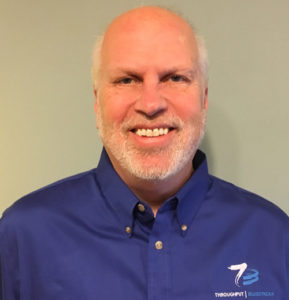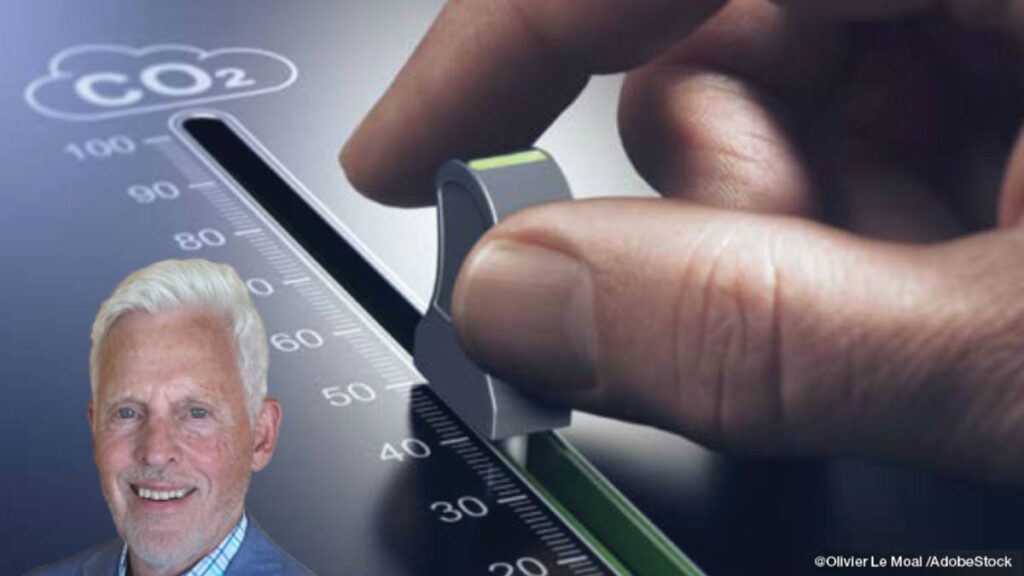Nadcap is a ubiquitous topic in the aerospace industry. In this original Heat Treat Today column, veteran heat treating partner, Todd Wenzel, of Throughput/Bluestreak, shares his opinion of the accrediting of Nadcap parts.
This article first appeared in the latest edition (March 2020) of Heat Treat Today’s Aerospace Heat Treating magazine.

First of all, I want to admit that I am not a quality manager, nor have I played one on TV, nor did I stay at a Holiday Inn Express last night. I just want to convey what I have seen in the heat treating realm regarding Nadcap accreditation. I also want to state upfront that if your company plans on aggressively pursuing aerospace part processing, it is always preferable to have your AS9100 and Nadcap accreditations in place.
My basic point to convey is that, in my humble opinion, it is not always necessary to have a Nadcap accreditation to actually process aerospace parts. Why would I make such a “treasonous” quality claim? Let me share two real examples that I have witnessed, and perhaps you have also witnessed.
Example 1
I have worked directly with many heat treating companies over the past 15+ years. Many have a Nadcap accreditation, many are in the process of obtaining it, and many that do not have it. My first example is an experience one well-respected heat treater had when setting up a new facility in a new location that would be physically positioned to tap into Nadcap work. They established this new facility and began the process of obtaining their AS9100 and Nadcap accreditation, none of which is inexpensive, as you are well aware.
Simultaneously, they started to market and talk to prospective customers about this new resource they would have for their aerospace parts. They eventually discovered that even though they had a stellar reputation in the industry, and their commitment to obtaining AS9100 and Nadcap was well documented, they found it extremely difficult, and even impossible, to move these prospective customers away from their current heat treat supplier(s) who were NOT Nadcap certified. WHAT, how could that be?!

Well, it turns out these non-Nadcap heat treaters were “grandfathered” into the manufacturer’s supply chain. They had been processing parts before Nadcap “requirements” and had sufficient quality control to produce the required results. I’m sure there was also a cost component here since the grandfathered heat treaters did not have the added expense of obtaining and maintaining a Nadcap accreditation. Plus, there was the inherent corporate inertia to not want to change unless forced into a change, in this case suppliers.
So, what did the Nadcap accreditation do for this heat treater, completely set up to serve the aerospace industry? Bupkis.
Example 2
In this second example, there is again a well-respected heat treater who has an AS9100 accreditation, but not Nadcap. They leverage their software-based quality management system like very few other heat treaters. Nearly every piece of data they need for an audit is literally one or two mouse clicks away. They fly through audits 50%-75% faster than other heat treaters, many without any findings, and every auditor who has the opportunity to work with them is astounded at the MES/QMS system they rely upon to produce these results.
Along comes a very well-known aerospace manufacturer who is looking for other heat treating suppliers. They show up for their normal audit, and what they find is not what they were expecting. Remember, this heat treater does NOT have a Nadcap accreditation, which is supposed to be a “requirement” for processing any aerospace parts.
Their audit went much faster than normal, and they passed with zero findings, which is almost unheard of for this manufacturer of flight-critical parts. The auditor said this company is in the top tier of heat treaters he had worked with and was “blown away” by the QMS system that provided them with the flexibility to drive customer-specific production control right down to every step performed on the shop floor. Plus, all of the supporting documentation of calibrations, training, document revisions, and much more was easily available to back up the processing history.
The auditor also said that the founder of this aerospace company always emphasized that they should NOT exclude potential suppliers that are not Nadcap or AS9100; they just need to have a fully vetted quality system. Obviously, this heat treater’s MES/QMS system met that standard in spades!
Conclusion
I am NOT implying there is no value to having AS9100 or Nadcap accreditations, but what I am saying is that as long as you have a well-vetted QMS system, you should not avoid marketing your company to process aerospace parts.
Obviously, you would need specific thermal processing equipment to do so; but, a well-vetted MES/QMS system that is designed to give your company the quality “leverage” you need to compete in the aerospace market is, in many respects, the main resource you need to expand your business into aerospace and beyond.
About the Author: From its inception in 2004, Todd Wenzel has served as president of Throughput Consulting, Inc., an enterprise software consultancy serving the metal treating industry.






